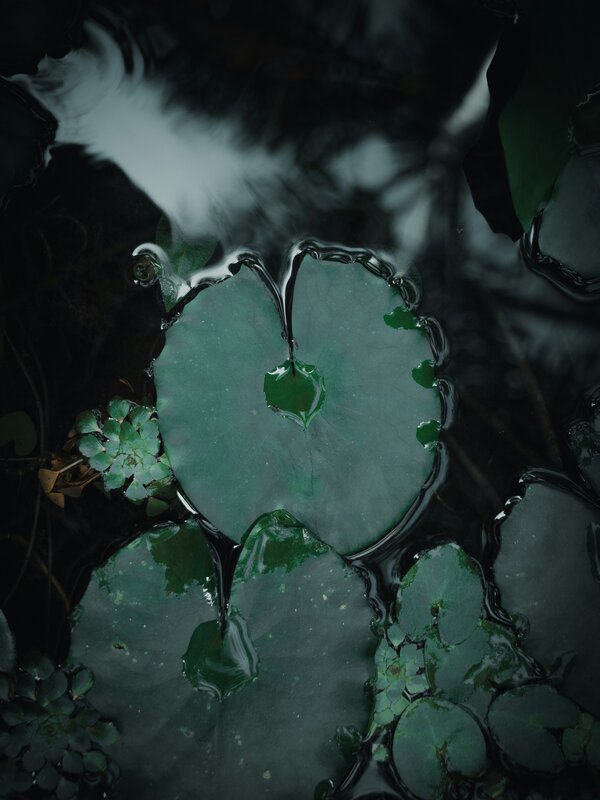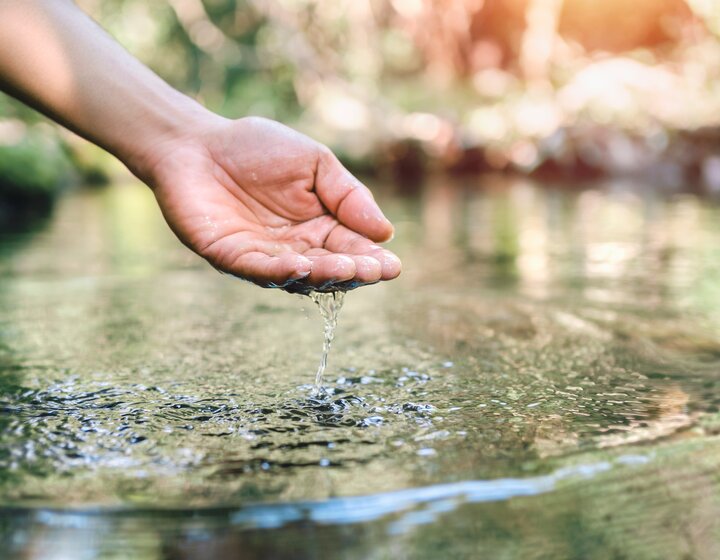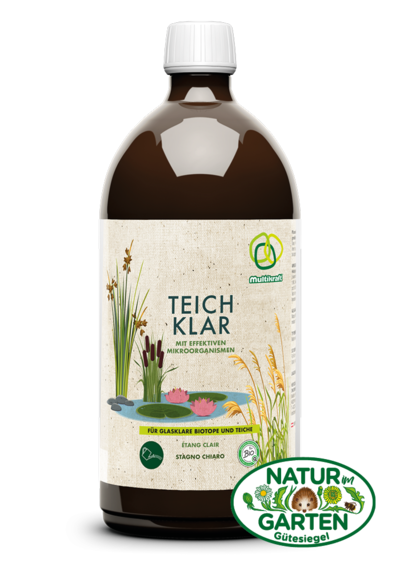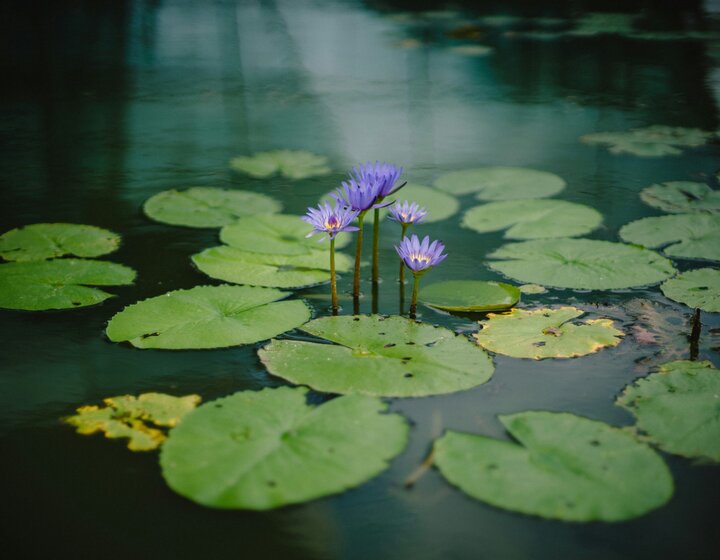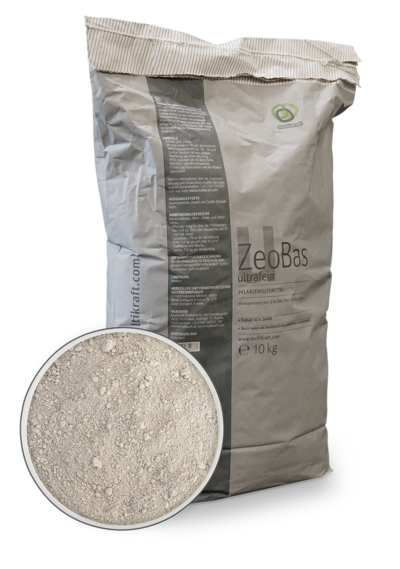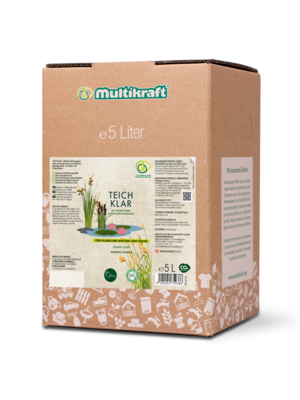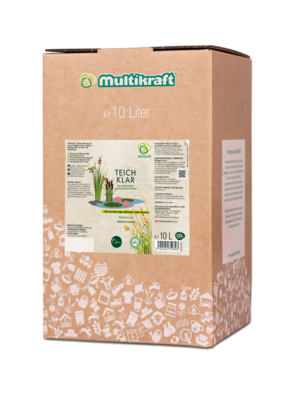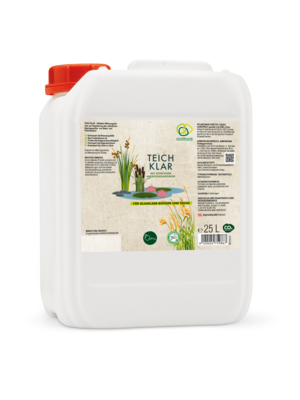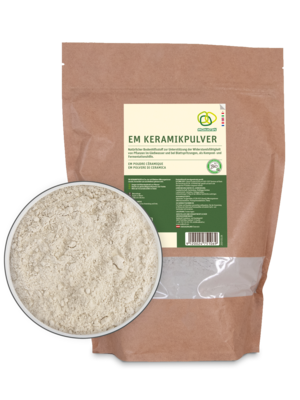These are our bestsellers against cloudy pond water
Your advantages with Multikraft
- No more cloudy pond water
The Effective Microorganisms in our products ensure that sludge is broken down and your pond is no longer cloudy. - Perfect conditions in the water
EM pond care promotes plant growth and reduces algae formation, stabilising the ecological balance in your pond. - Environmentally friendly & resource-saving
Our pond cleaners are produced in an environmentally friendly way and are also gentle on the pond and nature when used.
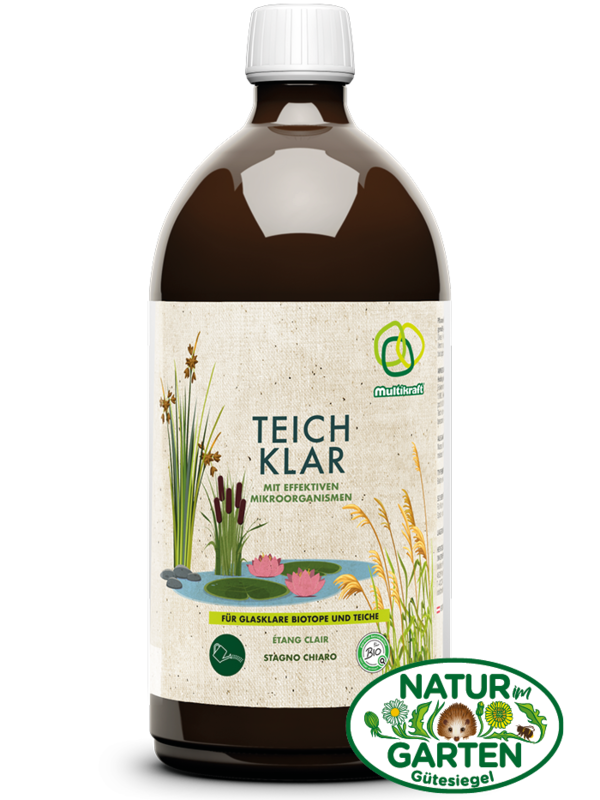
The pond care product against digested sludge
If you want to clear your cloudy pond water and remove sludge, then Pond Clear is the right product for you. With the help of Effective Microorganisms, the pond cleaner significantly improves the water quality of your pond and ensures a clear view right to the bottom.
Optimise the care of your natural pond
Natural ponds often suffer from intensive algae infestation and sludge formation. This is sometimes due to an excessively high nutrient content in the water and can be dangerous for the health of the pond. To counteract this, it is best to mix our pond care products Pond Clear and eMB Starter together and apply the mixture once or twice a year, depending on the thickness of the sludge.
Our application recommendation:
For 100m2:
1 litre of Pond Clear
0.1 litre of eMB Starter
For 1000m2:
10 litres of Pond Clear
1 litre eMB Starter
Clear, healthy water in the foil pond
To keep the water in foil ponds and biotopes clear in the long term, it is also best to use Effective Microorganisms. These bring the natural cycles into balance and thus reduce algae formation and water pollution. We especially recommend a combination of our products Pond Clear, EM Ceramic Powder and Zeobas ultrafine.
Calculate the pond care products you need for your foil pond now and start applying them!
Further tips for a clear view in your pond
EM pond care from Multikraft helps you to get to grips with problematic organisms such as algae or sludge. However, it is important that you also pay attention to a few other disruptive factors to prevent the water from tipping over. For example, fish the leaves out of the pond in autumn. This accumulates at the bottom and turns into sludge. It is also important to trim the pond plants, as they remove too many nutrients from the pond if they grow too large. If possible, your pond should not be exposed to the sun all day. It should also not be surrounded by bushes or other plants. This can also pollute your pond.
